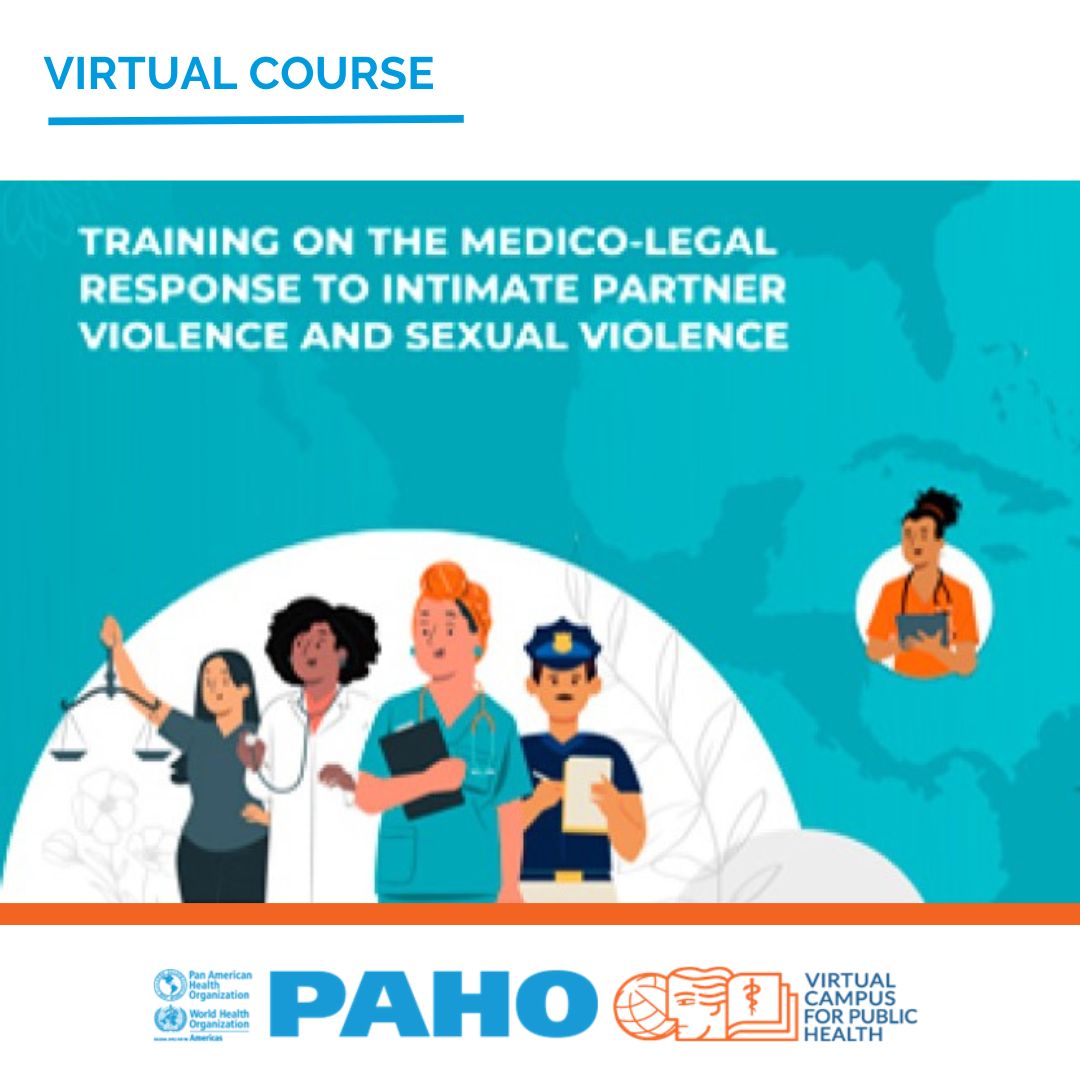
Course Introduction and Purpose
There is widespread recognition that violence against women and girls is a profound public health problem with adverse consequences. It also carries severe consequences for our societies.
It can be committed by any person, regardless of their relationship to the survivor, in any setting, and this violence can take many forms – including intimate partner violence and sexual violence.
Preventing and responding to violence requires a continuous multisectoral and multifaceted approach, and strengthening the medico-legal response is an important part of addressing violence against women and girls.
Therefore, the Pan American Health Organization (PAHO)/World Health Organization (WHO) has developed this introductory course for frontline providers, with a particular focus on health care providers, to raise awareness for and build skills in the medico-legal response to intimate partner violence and sexual violence.
Just a reminder that this course is just the beginning – we hope you engage with our supplementary resources and take additional training courses, including PAHO/WHO trainings that offer the opportunity to practice your clinical skills and trainings offered by our partners.
Learning Objectives
Throughout this course, you will:
- Explore the medico-legal response to intimate partner violence and sexual violence: why it’s important, what it includes, and how it fits into the clinical management of rape;
- Learn about the requirements of forensic documentation and learn how to collect forensic evidence, in addition to learning how to provide clinical and psychological care;
- Explore the requirements for a medico-legal response across settings, including learning about the importance of multisectoral collaboration.
Target Audience
The target audience for this training includes: a. health care providers, such as: doctors, nurses, midwives, community health care providers, health care managers, and health care students, specifically those who interact with potential survivors in emergency and obstetric/gynecological services, b. law enforcement, such as: police and protection officers, c. legal and justice representatives, such as: lawyers, legal advocates, and judges, d. laboratory staff, specifically: forensic laboratory staff, and e. social workers.
Course Workload and Dedication
This training was derived from the following publications (amongst others), from PAHO/WHO and partners such as United Nations Population Fund (UNFPA) and the United Nations High Commissioner for Refugees (UNHCR):
Responding to Intimate Partner Violence and Sexual Violence Against Women
Health Care for Women Subjected to Intimate Partner Violence or Sexual Violence: A Clinical Handbook
Strengthening the Medico-Legal Response to Sexual Violence
Guidelines for Medico-Legal Care of Victims of Sexual Violence
Clinical Management of Rape and Intimate Partner Violence Survivors: Developing Protocols for use in Humanitarian Settings
This course is open and available at the PAHO Virtual Campus of Public Health (VCPH). The course is designed to be completed at your own pace and to fit into your own schedule, it should take 15 hours in total to complete.
We hope that you find this course engaging, and we hope that you explore further resources and the additional reading that is included.
Course Structure
This course is divided into ten modules:
- Introduction to the medico-legal response: How this response fits within the clinical management of rape and why this response is important, who needs to be included, and the role of health care providers in this response
- Guiding principles: Survivor-centered safety and ethical principles to guide all interactions with survivors
- Myth or fact: Dispelling common myths and explaining facts about intimate partner violence and sexual violence
- Multisectoral collaboration: Explanation of the roles of multisectoral providers and the importance of collaboration
- First-line support: Introduction to “LIVES” and immediate care for survivors who present after intimate partner violence or sexual violence
- Self-Care: How health care providers can care for themselves and suggest self-care strategies to survivors
- Documentation: Overview of documentation, including of survivors’ stories, and documentation best practices
- Clinical care after sexual assault: Clinical care to offer survivors, including, for example, prophylaxis and emergency contraception
- Forensic evidence collection: How to collect forensic DNA evidence and how to complete drug facilitated assault testing
- Preparing for an examination: Personnel and infrastructure requirements for the medico-legal response and how to build capacity
Didactic Strategy
This is a self-study, free, open to the public and self-administered course. The modules have various educational materials such as: tables and infographics, videos, animations, case studies, questions to consider, further reading, and summaries.
Assessment and Certification
There is an assessment, of 40 questions, to complete at the end. In order to promote your learning, you will have unlimited opportunities to pass this final quiz. Participants who meet the course approval requirements, i.e., those who complete all ten modules and pass the final assessment by answering at least 70% questions correct, will be able to download their certificate of completion, issued by PAHO/WHO.
Acknowledgements
This course was developed by the Noncommunicable Diseases and Mental Health Department of PAHO/WHO. We gratefully acknowledge the financial support by Canada. Content development was led by Erin Hartman and Britta Baer (both PAHO), informed by past support PAHO provided to Grenada under the Spotlight Initiative. We are grateful for early advice by Darlene Omeir Taylor and Fiona Anthony (both PAHO). The online course benefited from the collaboration of Racoon Gang Learning Company, who assisted with developing the interactive learning experience. The online course was piloted in Guyana, and we are grateful for Guyanese health care providers and leaders for their review of the pilot of this course, with particular thanks to Karen Roberts (PAHO).
